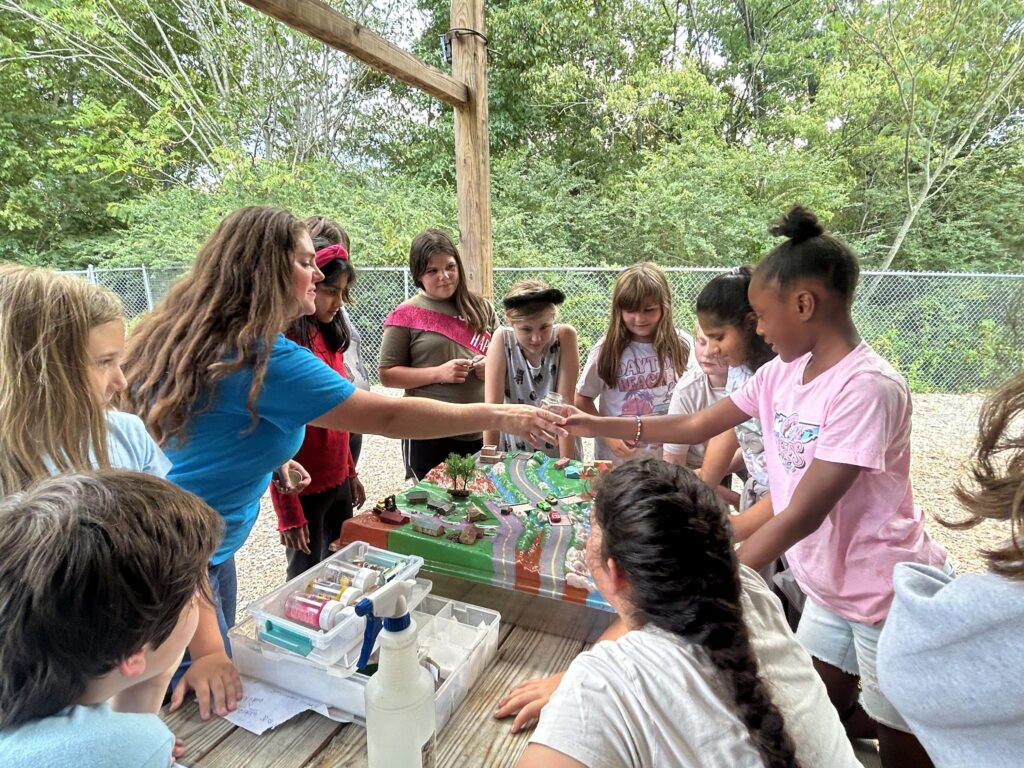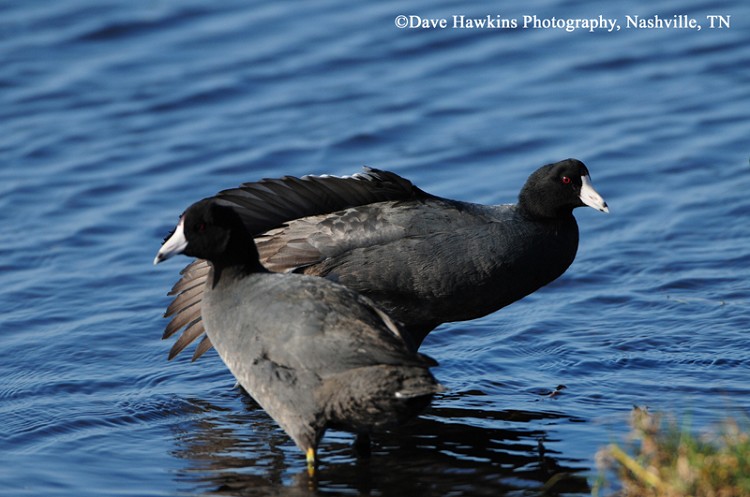Stream Teams officially kicked off their first meeting at Red Bank Elementary School. Alongside fifteen eager fifth graders, Peri Anne Edwards, the Educational Program Director at WaterWays, led the first meeting and got things started by introducing watersheds. Edwards guided the discussion and explained what watersheds are, why they matter, and how they affect bodies of water near us.
The Enviroscope, a 3D model of a watershed in a little town, demonstrates how different sources of pollution, both point source and non-point source, affect our bodies of water. Though none were actually eaten, sprinkles were used to represent pollution and runoff. Students had fun scattering them across the model to show how different activities like driving cars, agricultural practices, and factories produce contaminants. The demonstration wrapped up with a simulated rainstorm to show how runoff goes into our streams. As the mushy sprinkles drained into the basins, the water turned a murky brown, which was met by many “yucks” and “ews” from the group.
A scavenger hunt also took place, prompting the members to find items related to watersheds, such as storm drains, litter, plant life, and still water. They discovered grasshoppers and spiderwebs, and many were inspired to pick up trash around their school. The hunt let the students check out the creek where they’ll be spending the next few months in. As the group spends time there, they will become familiar with the ecosystem and participate in various activities where they will learn the basics of water quality testing, flow measurement, and macro-invertebrate sampling. They will also be introduced to creek restoration techniques, which will lead the students to a stewardship project in which they will develop their own plan to improve their watershed.
Stream Teams are all about hands-on learning by getting outside. It provides the opportunity for eco-conscious kids to explore and learn more about the creeks, streams, and rivers near them. The program echoes WaterWays’ mission “to lead community action to restore waterways and protect the local ecosystems on which we all depend.” Stream Teams hopes to help kids understand why it’s so important to protect our watersheds.



